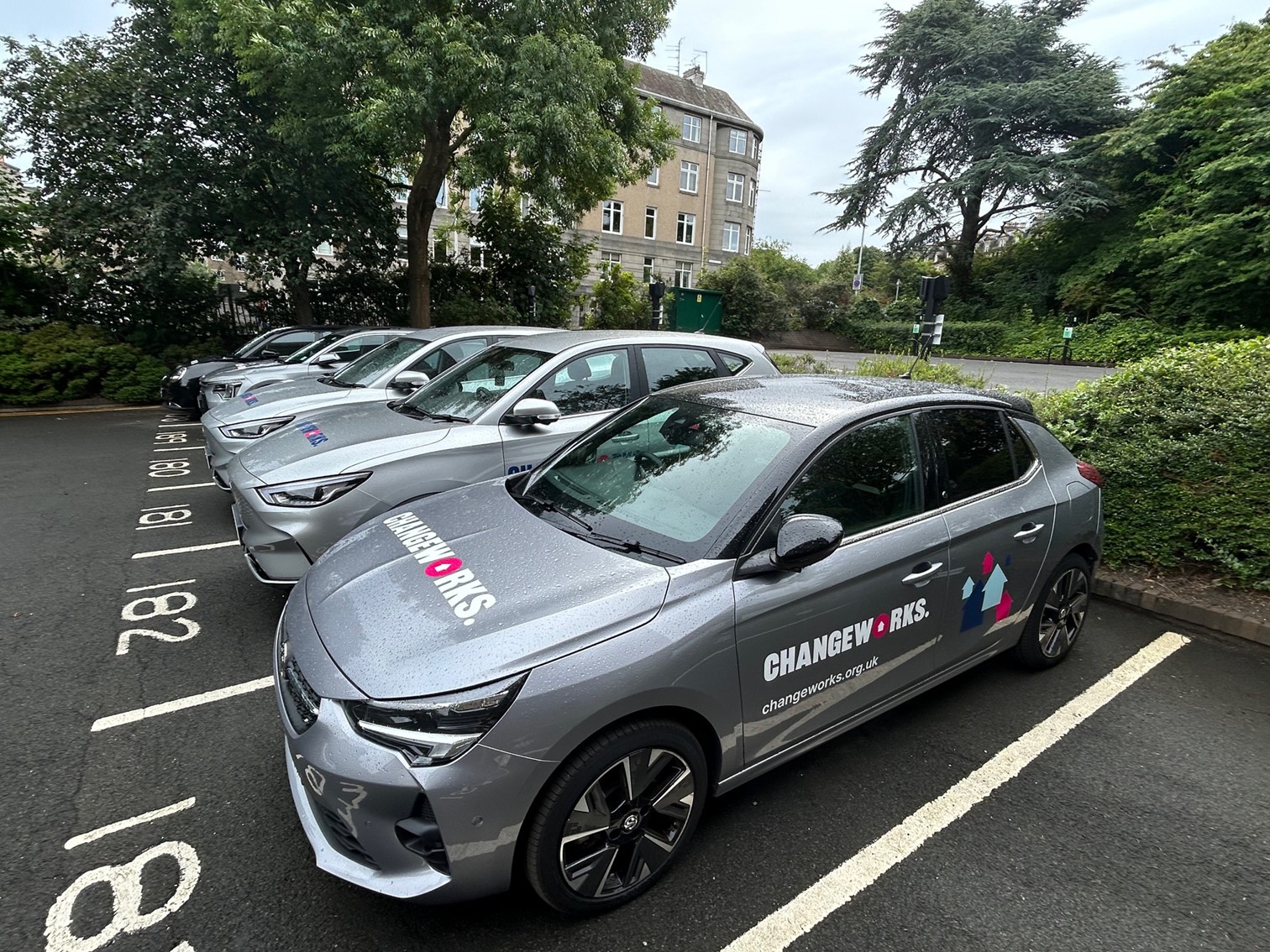Electric Vehicles
An electric vehicle can help cut your fuel costs. They also have a major part to play in the decarbonisation of Scotland’s transport sector.

If you’re thinking about switching to an electric vehicle, then our guide can help you get started.
What is an electric vehicle?
Simply put, an electric vehicle (EV) is a vehicle (such as a car or van) that’s powered by electricity. It has an onboard battery, which stores the electricity and can be recharged at a charging point. The battery powers the electric motor.
If the vehicle runs solely on electricity it’s known as a pure electric vehicle, or more officially, a battery electric vehicle (BEV).
As well as pure electric vehicles, there are two other kinds of EV:
- Plug-in hybrid electric vehicles (PHEV)
- Extended Range Electric Vehicles (E-REV).
Plug-in hybrid electric vehicles run on both electric and petrol. That means they have both an electric motor (powered by the battery) and a traditional combustion engine. As the name suggests, you recharge the battery by plugging the electric vehicle in to a charging point.
In electric mode, a PHEV’s range is around 50 miles. After that, you’ll either need to charge the battery or finish your journey using the internal combustion engine (ICE).
An extended range electric vehicle uses both electricity and petrol. The electric vehicle uses battery power until the battery runs low. At this point, a petrol or diesel fired generator takes over and powers the battery, keeping it from running out completely.
E-REV’s typically have a range of 150-300 miles.
Benefits of an electric vehicle
- Cheaper running costs
- A greener transport option
- Helps improve air quality in urban areas
Cheaper running costs
According to Home Energy Scotland, you’ll save around £760 a year by charging your electric vehicle at home compared to refuelling a car at the petrol station. If you have solar panels, the savings are closer to £1,000 a year. That’s because you can use the free electricity from your solar panels to charge your electric vehicle.
EVs are also typically cheaper to maintain than a petrol or diesel car. Since electric vehicles have fewer mechanical parts, repairs and MOTs can be less costly.
A greener transport option
According to Transport Scotland, transport is the biggest contributor to Scotland’s carbon footprint. Therefore, to reach net zero, we need to move away from transport that relies on fossil fuels.
Over its life, a new electric vehicle produces two thirds less greenhouse gas emissions than the equivalent new petrol car. This includes the emissions that come from making a battery and disposing of it at the end of its life.
Helps improve air quality in urban areas
A pure electric vehicle has zero emissions, which means it doesn’t need an exhaust. As a result, it doesn’t release harmful pollutants into the air. So the more people switch to electric vehicles, the cleaner the air in our cities and towns will be.
Electric vehicle home charger

An electric vehicle home charger lets you charge up your electric vehicle at home. Most electricity suppliers offer tariffs that let you charge your electric vehicle overnight, when electricity is cheaper. Tariffs such as these will help you save on your transport costs.
To find out more about electric vehicle home chargers, including funding options, visit our electric vehicle charger page.
Funding for electric vehicles
In Scotland it’s possible to get a loan to help you buy a used electric vehicle, as well as grant funding towards a home chargepoint.
Used electric vehicle loan
Energy Saving Trust and Transport Scotland offer a used electric vehicle loan, which depending on what vehicle you’re interested in can be worth up to £25,000. The loan is repayable over six years.
Full terms and conditions can be found on the Energy Saving Trust’s website.
Domestic chargepoint funding
A domestic chargepoint grant is also available from Energy Saving Trust and Transport Scotland. The grant offers up to £400 to help towards buying and installing a home chargepoint for electric vehicles.
You’ll find the full terms and conditions for the electric vehicle chargepoint grant on the Energy Saving Trust’s website.

Changeworks delivers Home Energy Scotland in the south east and Highlands and Islands on behalf of the Scottish Government and Energy Saving Trust.
As well as providing free, impartial expert advice to thousands of people every month to help them to keep warm in their homes for less, they identify funding opportunities for households seeking to install energy efficiency measures.
For more information, give Home Energy Scotland a call on 0808 808 2282 or email and the team will be happy to help you.
Useful pages
Is this page useful?